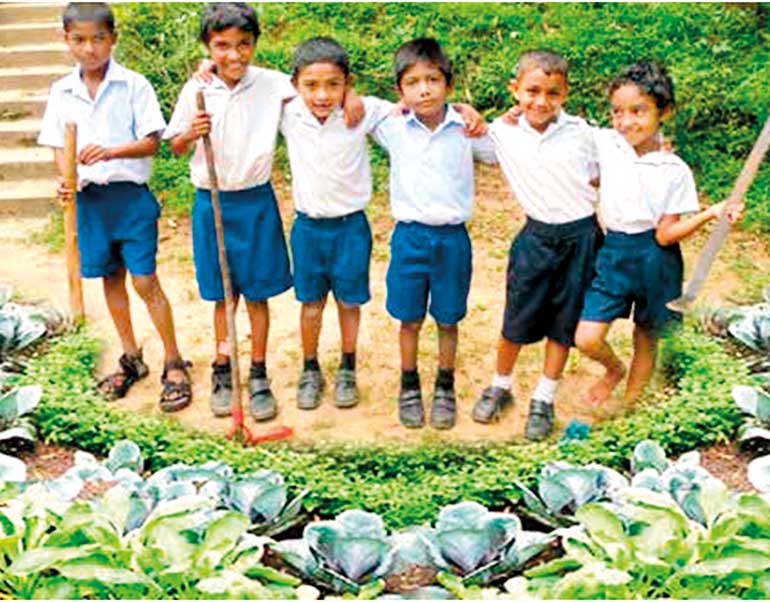Sunday Feb 22, 2026
Sunday Feb 22, 2026
Thursday, 26 May 2016 00:00 - - {{hitsCtrl.values.hits}}
 ‘Scaling up nutrition through a multi-sector approach’ is a Spanish-funded project implemented jointly by Food and Agriculture Organization and the World Food Program of the United Nations.
‘Scaling up nutrition through a multi-sector approach’ is a Spanish-funded project implemented jointly by Food and Agriculture Organization and the World Food Program of the United Nations.
The objective of this project is to improve efficiency and effectiveness of government investment in food security and nutrition by highlighting the gaps, opportunities and impact of current initiatives. This project also aims to achieve attitudinal and behavioral changes through enhanced nutrition education and nutrition promotion on safe and nutritious foods, dietary diversity, nutrient deficiencies and its root causes.
With today’s urgent need for increased food security, environmental protection, secure livelihoods and better nutrition, the project has identified ‘School Gardens’ as a promising seed ground for the nation’s good health and wellbeing.
Improvement of nutrition amongst school going children is of utmost importance to the development of a country as well-nourished children are healthier and learn better, thus improving their opportunities and contributions to society later in life.
School gardens allow for the schoolyard to be used as a classroom, reconnecting the students with the natural world and the true source of their food. The gardens teach the children about good health and the importance of a balanced diet and good nutrition. They can practice gardening of vegetables and fruit, learn about agriculture concepts and biology and gather experiences that integrate with several subjects in other parts of the school curricular.
To build the capacity of the officers of the school nutrition and health services branch of the Ministry of Education and of school teachers, FAO conducted a two day residential training program on school gardening practices. This program was facilitated by Dr.Jayath Keerthisinghe, Faculty of Agriculture, University of Peradeniya.
This training covered such topics as school garden site selection, types of beds, shading and planting material, selection of garden tool and equipment, fertilisation, training and pruning, pest control using plant extracts and modern technologies, and other relevant agricultural systems.
With this training, it is expected that the school gardens of the participating schools will become a popular and productive part of the learning of school children and will contribute to their understanding of nutrition as a source of wellbeing, both now and in the future.